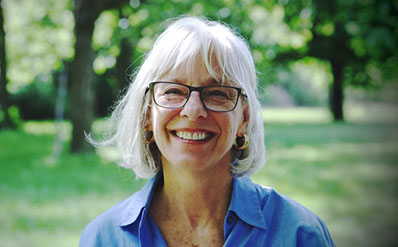
 back to all news
back to all news
Women's History Month: Much remains to be done before women experience the self-determination and equity necessary for sustainability

 As SEAS celebrates Women’s History Month, I urge that we think across scales—from our experiences at the University of Michigan to the United States, where women won the right to vote only in 1920, to a global scale, where a focus on women’s rights is integral to advancing sustainability. This month we can and should celebrate the enormous, impressive accomplishments of the women graduates, staff, and faculty of SEAS. I know that SEAS Master of Landscape Architecture graduates are international leaders in ecological design, cultural and ecological landscape restoration, urban ecology, and the landscape science of socio-environmental systems. They do their work in private practice—in firms ranging from broadly interdisciplinary and global to specialized and local, in local, state, and national government positions, in nongovernmental organizations, and in the academy. Their work has been featured in SEAS communications, disciplinary blogs and magazines, and scholarly journals; and it has been recognized by awards nationally and internationally.
As SEAS celebrates Women’s History Month, I urge that we think across scales—from our experiences at the University of Michigan to the United States, where women won the right to vote only in 1920, to a global scale, where a focus on women’s rights is integral to advancing sustainability. This month we can and should celebrate the enormous, impressive accomplishments of the women graduates, staff, and faculty of SEAS. I know that SEAS Master of Landscape Architecture graduates are international leaders in ecological design, cultural and ecological landscape restoration, urban ecology, and the landscape science of socio-environmental systems. They do their work in private practice—in firms ranging from broadly interdisciplinary and global to specialized and local, in local, state, and national government positions, in nongovernmental organizations, and in the academy. Their work has been featured in SEAS communications, disciplinary blogs and magazines, and scholarly journals; and it has been recognized by awards nationally and internationally.
However, at this time of massive national and global change, we may be best served if we allow the achievements of SEAS women to inspire us to confront the formidable work ahead. Much remains to be done before women in the United States and globally experience the self-determination and equity necessary for sustainability. The essential link between women’s experiences and sustainability was fundamental to the sustainable development concept introduced by Our Common Future (1987), the report of the World Commission on Environment and Development chaired by Gro Brundtland. The world has changed since that time, and because of the report. For example, the University of Michigan now has a School for Environment and Sustainability. However, the obstacles facing women globally largely remain. This is underscored by an October 2020 statement by The Elders, a small group of global leaders founded by Nelson Mandela and including Brundtland, who use diplomacy to challenge injustice globally. They state:
"We insist that world leaders assume their responsibilities to address the long-term drivers of inequality. This includes tackling racial and gender discrimination, violence against women, the pernicious legacy of colonialism, inadequate social security nets and workers' rights, and chronic indebtedness across the nations of the Global South."
Their statement should remind us that celebrating the accomplishments of women should never overlook the struggles that women continue to encounter professionally and personally. This takes the form of implicit bias, which is experienced by women as students, at work, at home, and in their communities. It also takes the form of private, often unseen, inequities and harms. At the University of Michigan we are probably similar to other places nationally, where the pandemic has vividly demonstrated that women disproportionately bear responsibilities and time commitments for care-taking of family members. Further, regardless of class, wealth, or race, women continue to be subject to violence and coercion that is not visible to the public; this may take the form of intimate partner violence or, as was recently and tragically experienced by women at the University, sexual abuse by those in power.
These harms and inequities have not been ignored within the University. The ADVANCE Program is a central resource for counteracting these issues. However, SEAS's mission to contribute to achieving a sustainable and just society should propel us to do even more. Within SEAS, we should absorb and enact the lessons offered by ADVANCE and by the lived experiences of our prospective students, current students, staff, faculty, and alumnae. Further, I suggest that the most powerful way to authentically celebrate the accomplishments of women in the SEAS community is to ensure that our conception of equity respects and empowers women globally.
We invite you to explore more of our series, Women's History Month: Perspectives from SEAS Women in Sustainability. We'll be adding more "Voices" and stories throughout the month.

